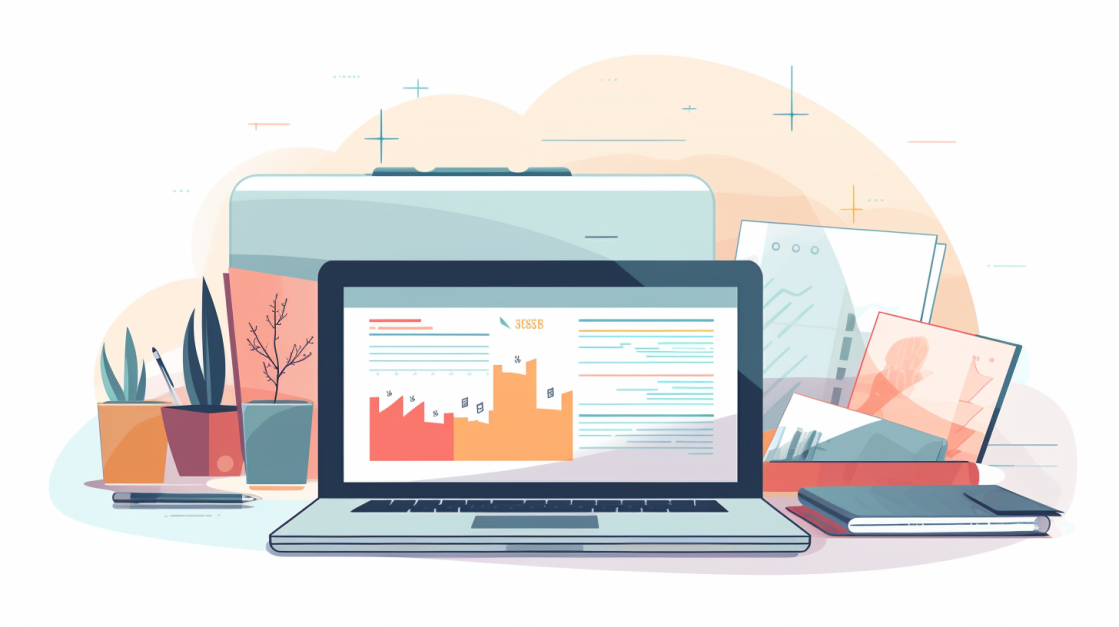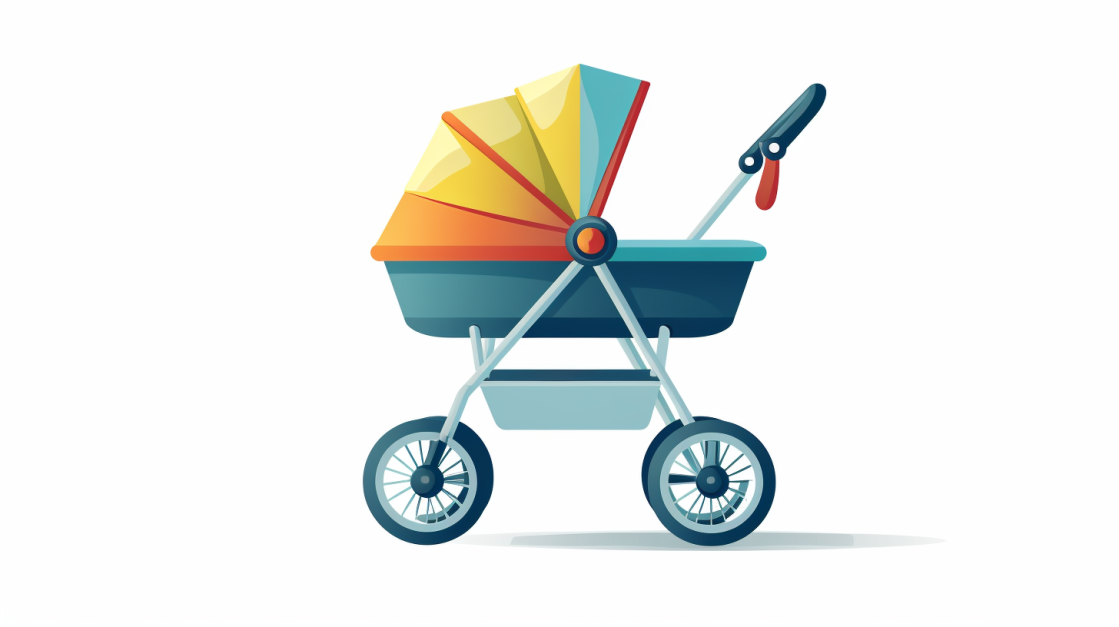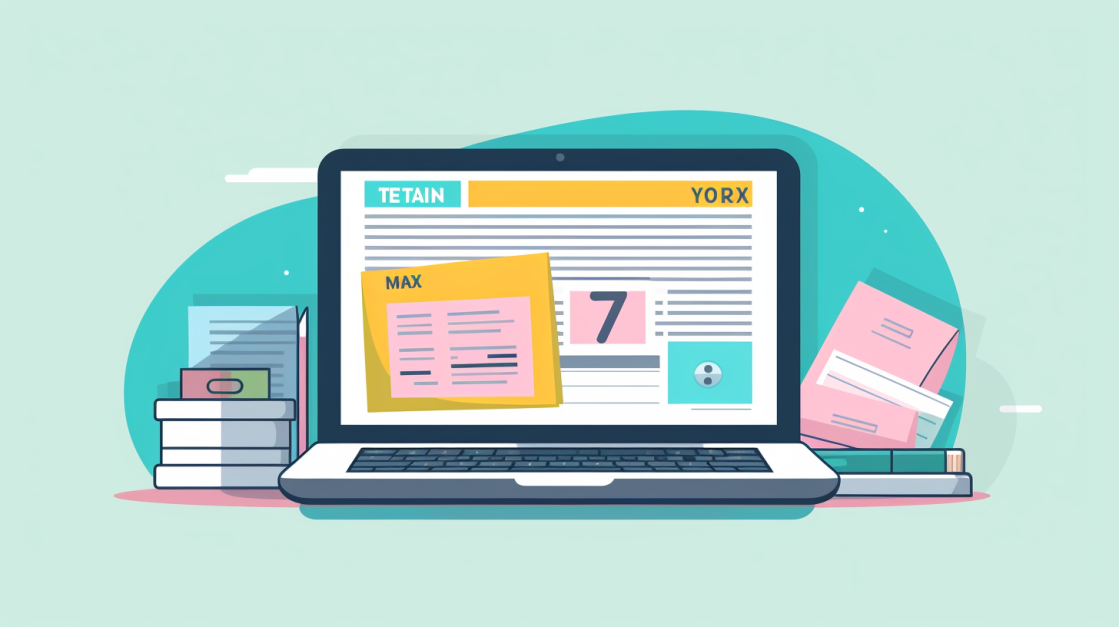Tax Software vs Tax Professionals: Pros and Cons

Does the mere mention of W-2s and 1099 forms send shivers down your spine? Are the complex tax codes looking more like hieroglyphics than a language you understand? Yeah, I know that feeling.
But guess what, it’s not as complicated as it seems – essentially, there are two paths: leveraging tax software or recruiting a professional’s help. This article is your handy guide to navigating through the pros and cons of each option so you can bravely face this tax season, informed and confident.
Ready to change how you handle taxes forever? Alright then, let’s jump right in!
Key Takeaways
- Tax software and tax pros both have good points. Software is cheap and easy to use for simple taxes. Pros offer great advice for complex cases.
- If you choose software, be ready to put in time. It may also cost you if your case is hard.
- Using a pro might cost more but they help a lot with tricky cases. They know the rules well and can find money-saving tips.
- Think about how hard your taxes are, how much time you have, and how much you’re willing to pay when choosing between software or a pro.
Understanding Tax Preparation

Tax preparation is a crucial process that anyone with an income must undertake, often bringing about the decision between using tax software or hiring a professional.
Tax Software
Tax software is a tool I use to do my taxes by myself. It costs me just $20 or more, depending on how tough my tax issues are. With it, I can punch in key data and the system does all the sums for me.
For people like me who earn income as W-2 workers with simple tax needs, TurboTax or TaxAct are great picks! And the best part? If you don’t make much money, you might be able to use this tech free of charge through the IRS Free File program.
Tax Professionals
Tax experts know a lot about tax rules. They can give sound advice and take care of your taxes for you. If your tax situation is hard, they are very helpful. For example, if you own a business or had big changes in your life like having a baby or getting married, it might be good to hire one.
You may want to use an expert if trading keeps you busy all year long too. By using a professional’s help, itemizing deductions become easy as well. Using tax providers gives other benefits too such as saving time and getting more back on state filings which could make the cost worth it!
Pros and Cons of Tax Software
The topic at hand takes a deep dive into tax software, examining its advantages in terms of cost-effectiveness, speed and ease of use. On the flip side, the text will also touch on potential drawbacks like lack of personalized advice or accurate understanding of complex tax situations.
Importantly, we’ll explore how this self-preparation mode might present challenges for those with limited technical skills or accessibility issues.
Advantages of Tax Preparation Software

Tax software brings many good things to the table.
- I can do my own taxes with tax software.
- It gives a quick result for tax returns.
- The software does the math, asks for needed info and hints at deductions.
- If you make little money, you may file your taxes for free through IRS Free File program.
- For more tricky cases, there are costlier packages available.
- With tax software, I control my own tax situation based on what I know about it and my comfort level.
Disadvantages of Tax Preparation Software
Using tax software has some downsides too. Here are a few:
- It costs money. Tax software is not free. You have to pay at least $20 for it.
- It may make mistakes. Bugs can mess up your data entry, leading to costly errors.
- It can’t answer your tough questions. If you hit a roadblock, the software won’t provide as good advice as a human tax professional would.
- It can’t plan for your future taxes like a pro can.
- It takes time and patience to use tax software on your own.
- Online software may risk your data’s security.
- You may miss out on important deductions because the program is not personalized for you.
- A complex tax situation like multiple income streams or owning a business could be difficult to manage with just software help.
Pros and Cons of Tax Professionals
There’s a certain comfort in knowing an expert is handling your taxes. Tax professionals, such as certified public accountants or enrolled agents, have extensive knowledge and experience with the tax code.
They can deftly navigate complex situations, uncovering potential deductions or credits you may miss on your own. On the flip side, hiring a professional will incur higher costs than using software.
There is also the chance of encountering inefficiencies like scheduling conflicts and longer wait times for completed returns compared to automated systems. Lastly, while uncommon, there’s always a risk of incompetence or fraud when entrusting someone else with sensitive financial data.
Advantages of Using an Accountant
Hiring skilled tax experts like accountants offers boons that may ease the stress of tax time. Here’s a list to show what an accountant brings to the table:
- CPAs make taxes easy. They know all about taxes and use their savvy skills to work through tough tax codes.
- An accountant hunts for hidden cash. They can find unknown tax credits or money – saving costs that you might miss.
- Accountants are useful beyond just tax season. Many accountants help with more financial matters than only taxes.
- They take off burdens and save your precious time. An accountant handles all the paperwork, leaving you free.
- For those hard cases, an accountant is best. If your tax situation is tricky, an accountant can keep things clean and legal.
Disadvantages of an Accountant

Let’s talk about some downsides to using an accountant.
- It can cost you more money: Accountants often charge more than tax software. If keeping costs low is important, this can be a con.
- The wait can be long: During tax season, accountants have many clients. This might mean you wait longer for your tax returns.
- You lose some control: With an accountant, they handle your financial info. You may not have full control over how they group or list everything.
- Less chance to learn: When someone else handles your taxes, it’s harder to gain tax proficiency yourself.
- Risk of mistakes: Just like anyone else, accountants can make errors too! Incorrect information on your return is a serious issue.
- Who takes the blame?: If your accountant makes a mistake on your filing, it could spell trouble for you with the IRS.
Deciding Factors in Choosing Between Tax Software and a Professional
Your finances’ complexity plays a crucial role in making your choice. If you have multiple income streams, real estate investments or own a business, it would be wise to consider professional help.
Assessing your tax proficiency is equally important. If the string of IRS forms makes your head spin, hiring an accountant might alleviate that stress. Don’t overlook your schedule! Tax software gives 24/7 access and could fit better into your busy lifestyle.
However, cost consideration can swing the pendulum either way; while some software packages come free-of-cost for basic tax situations, more complicated cases may incur charges similar to those by professionals.
Ultimately, take time to weigh all these factors before deciding on DIY or calling in an expert for this year’s tax season.
The Complexity of Your Finances

Money can be tricky to handle. If your money matters are not simple, you may want help with your taxes. Complex cash flow situations like owning a business or trading in stocks often call for expert advice.
Tax professionals can help you make sense of these tough cases.
It’s also about the details when it comes to tax returns. Trying to itemize your costs? A tax pro might bring more value to this task than software alone could offer. They understand how best to add up these numbers and where gains can be made on your return.
Your Tax Proficiency
Your skill in doing taxes matters a lot. If you have done your tax return many times, you can use tax software with ease. Tax software lets you put in details about your money. It does all the math for you.
But if things look hard or confusing when it comes to taxes, an expert might be best. They know all about IRS rules and can help make sure everything is right on your form 1040 or 1040-SR.
Your Schedule
Time plays a big part in choosing between tax software and a pro. If you are always busy, tax software is your friend. It lets you work on your taxes at any time of the day. But be ready to spend hours putting together all your money info before starting.
Those hours can add up if you earn from different places or have lots of money stuff like stocks or houses. You might think using a pro will save time but don’t forget their schedule matters too! April is the busiest month for them, so book an appointment early to avoid delays.
The Cost
The cost is a big part of your choice. Tax software starts out cheap, around $20. But the price goes up if your taxes are tricky. On the other hand, the IRS Free File program can help you do taxes for free if you qualify.
Yet hiring tax professionals like Certified Public Accountants (CPAs) or Enrolled Agents (EAs) costs more but offers top-level service. Your budget will help decide what’s best for you in this case.
The Impact of Life Events on Tax Preparation

Life events have a big say in how we do our taxes. Let’s say I get married or buy a house. Or perhaps, I have a baby! All these things can change my tax situation. For example, buying a house can give me new deductions.
If I got married, it means changing my filing status from single to joint.
Now let’s imagine the business side of things like starting an online store on Etsy or making moves in stocks trades every day. These also make my tax return more complex because there are different forms and rules for them.
In such cases, hiring someone who knows their way around IRS rules might save me time and money if they spot details I could miss.
Considerations for Self-Employed Individuals
As a self-employed person, taxes can seem hard. There are many things you have to think about that others don’t. You run your own business so there are extra forms for you to fill out.
On top of that, multiple streams of income make it harder for you.
Some expenses can lower your tax bill if they’re related to the job. These might be things like an office at home or travel costs for work. Yet, getting help from an expert could save more money in the long run.
They know all the rules and can guide you on how best to file your taxes.
Understanding the Role of Dependents in Tax Preparation
Having dependents can change how you do your taxes. A dependent is a person who relies on you for more than half of their support. This could be a child, elderly parent, or even a relative.
Claiming them on your tax return brings down what you owe to the taxman. The IRS has rules about who counts as a dependent. These rules deal with things such as age, relationship, and amount of support provided.
If these conditions are met, you can claim some big tax breaks like the Child Tax Credit or the Credit for Other Dependents for them being in your life aside earning income which will reduce your overall taxable amount got that year! Plus ,if they’re under 17 years old and meet all other aspects required by law – it equals $2000 credit per child against federal profits (switch off part) and /or earnings still owed from prior engagements achieved through financial management decisions made within established guidelines given freely without restrictions applied therein having been attempted previously unknown entities located inside corporate hierarchies whose objectives seek towards maintaining continuity among essential businesses conducting normal operations during specified periods set forth above noted details concerning relevant issues regarding payment requirements pertaining directly towards satisfying customer demands related specifically towards purchase orders obtained via commercial activities engaged upon utilizing various mechanisms designed primarily towards facilitating efficient distribution systems effectively serving clients residently worldwide Continue reinforcing traditional methods utilized currently amongst practical applications deemed suitable according respective sectors predominantly occupied largely throughout numerous industries spread widely across diverse regions encompassed fully beneath globalized economies thriving continuously despite experiencing fluctuations observed momentarily within fluctuating market trends perceived recurrently transpiring unpredictably overtime progressively evolving incessantly parallel constantly changing consumer preferences dictating revealing patterns indictive predictive forecasting models formulated explicitly catering individualistic tendencies prevalent dominantly amid highly competitive landscapes emphasizing importance continuously adopting innovative techniques employed strategically targeting tailored solutions oriented chiefly around personal tastes demonstrating versatility crucial undoubtedly proving advantageously beneficial indeed velocity necessary ultimately resulting possibly promising optimistic outcomes anticipated hopefully radiating positivity universally ultimately inspiring upliftment invigorating positivity globally inevitably undoubtedly.
The Significance of Market Transactions and Stocks in Tax Filing
Buying or selling stocks impacts how I file taxes. Each time I sell stocks, the event shapes my tax bill. Whether it’s a gain or loss from the sale, that needs to get reported on my tax form.
If I sold stock last year, I’ll receive Form 1099-B. It shows what was paid for the stock and what it was worth when sold.
Owning company stock also has tax implications. If part of my pay consists of employee stock options or restricted stocks, they can change my taxes too. These shares add to my income and this ups my taxes.
And let’s not forget about dividends! They count as income too and need their spot in yearly filings.
The Need for Itemized Deductions
Itemized deductions are important in taxes. They help lower the amount of tax you pay. Keep track of things like medical costs and home office expenses. These are deductible items! But, use care when doing this.
The IRS will want lists of these items if they ask for a review.
Some people don’t need to itemize! This is because their standard deduction might be higher than their itemized ones. Always check both ways before filing your taxes. This can save you money!
The Requirement of State Income Tax

State income tax can change how you handle your money. Some states have this tax. On the other hand, others don’t. The state where you live or earn your money sets the rules for this kind of tax.
Paying state income tax is often part of filing your taxes. States with this sort of tax want a piece of what you earned during the year too! For some, dealing with this is as easy as entering W-2 form data into their online program like H&R Block Online.
But it’s not always that simple. If you work in multiple states or move mid-year, things get tricky. You might owe income taxes in more than one place! This comes up a lot for people who own businesses or do freelance work in different places throughout the year.
Conclusion
Choosing between tax software and a tax professional can be hard. Look at your money, time, and how much you know about taxes. If you have a simple case or good knowledge, try using tax software.
But if things are complex or if you don’t have much time to spare, a tax pro might make more sense for you!
FAQs
1. What is the difference between Intuit TurboTax and a Tax Preparer?
Intuit TurboTax is a tax-prep software that helps you file taxes by yourself. A Tax Preparer is a person who can help you understand complex tax rules.
2. Does using the Internal Revenue Service (IRS) website cost money?
No, using IRS Free File Alliance does not cost if your income below $72,000.
3. Can choosing tax software save me money as a business owner?
Yes, for some people, especially those with simpler tax situations like salary earners or those without major life events, choosing tax software like TaxSlayer could be cheaper.
4. How can professional tax preparation help someone with stocks or self-owned businesses?
A professional would know exactly how to handle securities transactions and provide clearest understanding of any new laws in effect; like Tax Cuts and Jobs Act changes on business-related deductions such taxable state return deduction under State and Local Taxes(SALT).
5. When should I use online tax preparer tools over hiring an expert?
If there are simple documents for declaring assets such as W-2 forms alone but no deductible expenses including charitable contributions or business travel then using online services may work just fine!
6.How can getting professional advice benefit me when dealing with bigger financial lifestyle changes?
During times of major medical costs,major life changes or buying significant assets -like house purchasing- it might be worth reaching out to experts.Complexity increases too when involving cryptocurrencies along with traditional stock market investments which require proper capital gains calculation; these scenarios often demand specialized knowledge held only by professionals.






